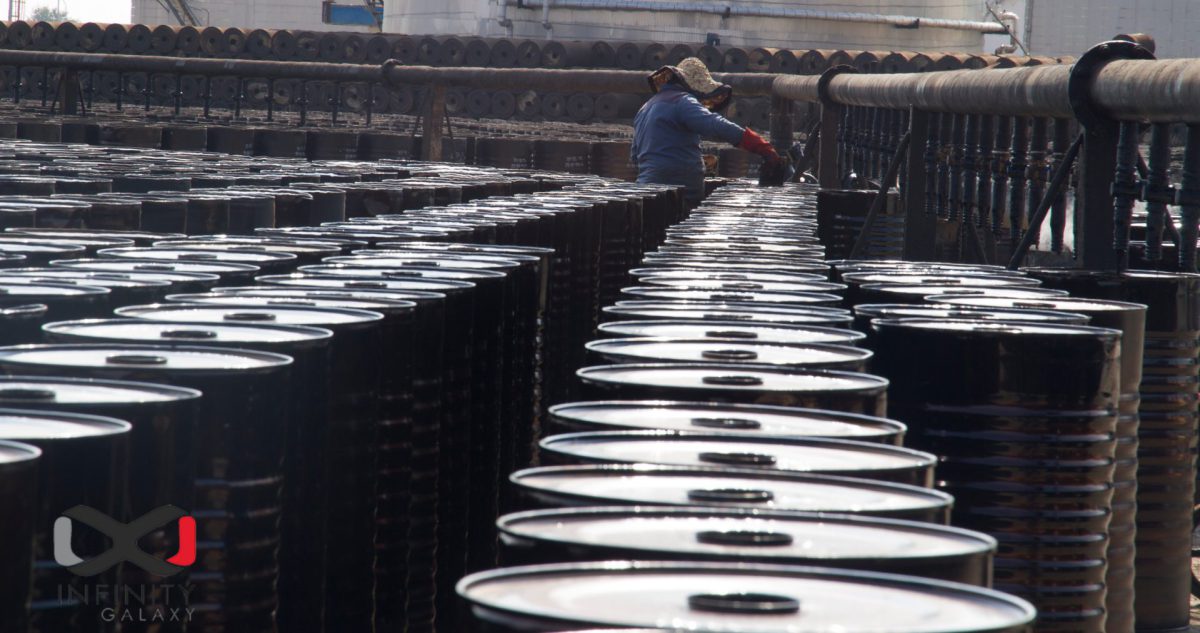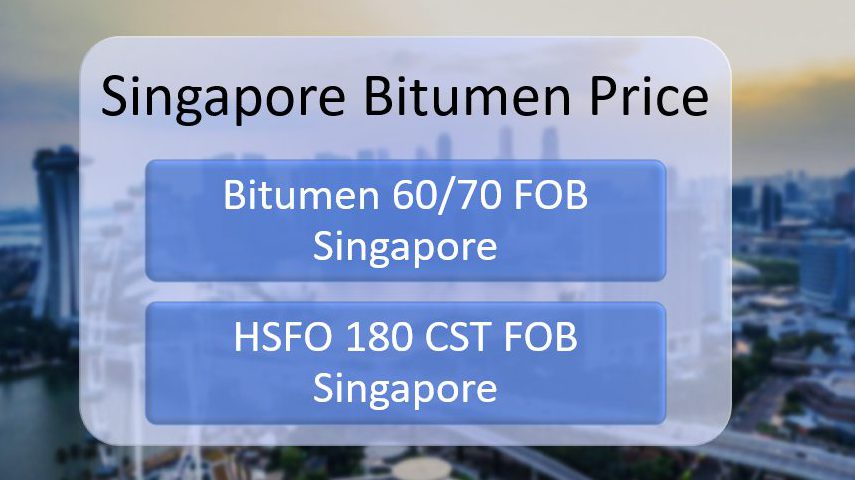Bitumen is a mixture of heavy organic molecules with a specific gravity between 1.01 and 1.06. Bitumen properties have an essential role in its classification.
It is mostly classified based on physical properties such as penetration and viscosity. Also, softening point, ductility, and flash point are the other properties of bitumen that are important in its application.
Keep reading this article to learn more about the physical and chemical properties of bitumen, their definition, and importance.
Physical Properties of Bitumen
Hardness or Penetration of Bitumen
The penetration value of bitumen is defined as bitumen hardness. The bitumen penetration test is used to measure it by applying a needle into the bitumen surface. Low penetration values indicate harder bitumen, whereas higher values mean softer bitumen.
One of the most common types of bitumen is penetration grade bitumen, which categorizes bitumen based on its hardness or penetration value.
We can determine the right bitumen applications based on their penetration value. For example, bitumen with penetration values higher than 100 deci-mm is suitable for waterproofing projects.
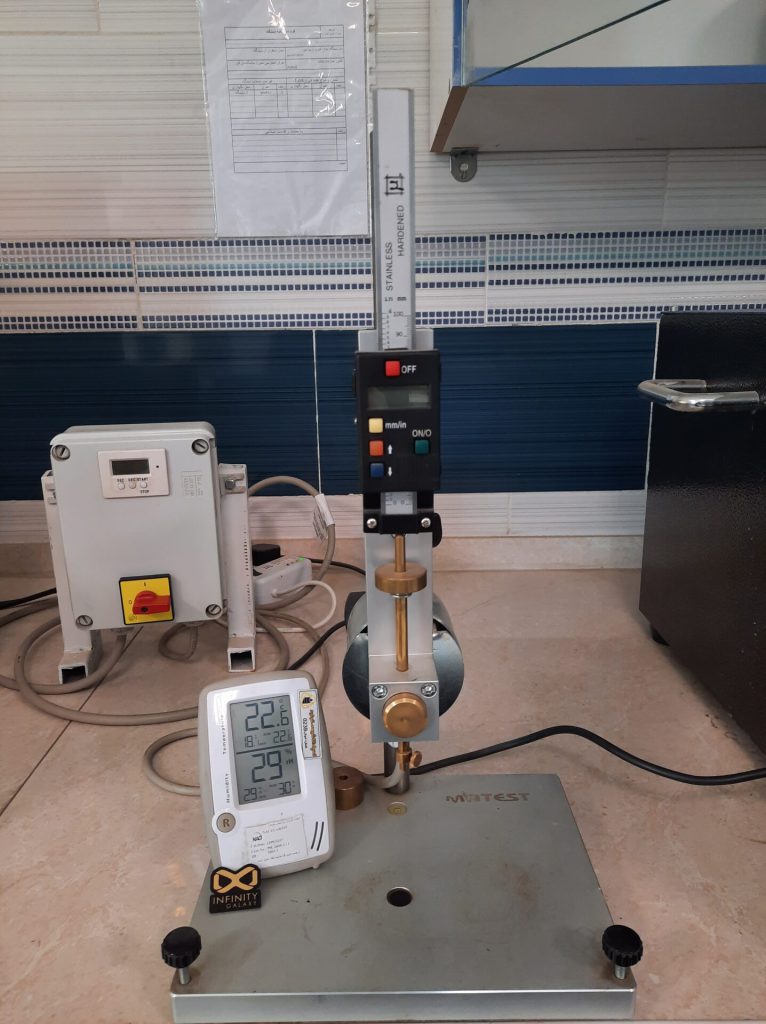
While, bitumen with penetration values between 40 and 100 deci-mm is useful in road construction, such as bitumen 60/70 and 80/100.
Also, the hardness of bitumen is a determining factor that shows which type of bitumen will perform better in the weather of the construction region. Soft bitumen like 80/100 penetration grade is suitable for cold temperatures and hard bitumen like 35/50 grade is proper for hot weather.
Bitumen can become harder if it is exposed to UV rays for a long time or if its volatile substances are released over time.
Softening Point of Bitumen
The temperature at which bitumen becomes softer to turn into liquid is called the softening point. It is measured with the ring and ball test method.
When bitumen becomes hotter than its softening point, it will melt and lose its adhesive property. As a result, bitumen with a high softening point is more suitable for use in hot weather.
Viscosity of Bitumen
Viscosity is a property that indicates the fluid resistance to flow. The higher viscosity means it moves harder. Bitumen also has another classification based on its viscosity, known as viscosity grade bitumen.
Viscosity is very important to have a uniform asphalt. For this reason, the optimum viscosity amount should be chosen to stick the aggregates well together.
Bitumen with very low viscosity acts like a lubricant and its adhesive property is low. On the other hand, bitumen with a high viscosity value cannot cover the aggregates uniformly because its fluidity is low.
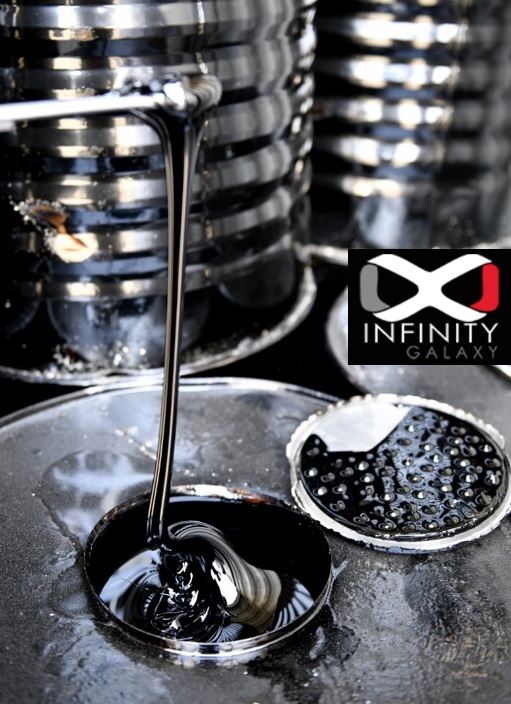
As the temperature rises, the viscosity of bitumen decreases. This reduces the bitumen’s ability to hold the aggregates together.
In the same way, bitumen becomes harder in cold weather. It causes cracking and decreases bitumen durability against the traffic load.
So, bitumen with high viscosity is suitable for hot weather, and low-viscosity bitumen is a better choice in cold areas.
Click to learn three different viscosity tests of bitumen, its equipment and procedures [+Video].
Ductility of Bitumen
The ductility is a property of bitumen that leads to asphalt being a flexible layer. In other words, when bitumen is deformed by traffic load, it can return to its original shape without damaging or cracking.
If bitumen has a good ductility, it can form a flexible and uniform coating on aggregates. You can read the ductility test article for more information about how it is measured and reported.

Density of Bitumen
The density of bitumen is how much it weighs for every unit of volume. Bitumen density typically ranges from 1010 to 1060 kg/m3 (1.01 to 1.06 g/cm³) at room temperature. It mostly depends on the composition and grade of the bitumen.
Density of bitumen is usually calculated as specific gravity. The specific gravity formula is bitumen density divided by water density. Check out bitumen specific gravity test to learn its definition and procedure.
Volatility of Bitumen
Bitumen may have some volatile content. It leads to hardening bitumen after heating in the construction process because the volatile materials are vaporized at high temperatures.
As its volatile content increases, bitumen becomes harder after heating. This property of bitumen is evaluated by the drop in penetration after heating test. A greater drop in penetration value after heating indicates a more volatile content in bitumen.
Waterproofing Ability of Bitumen
Bitumen is waterproof, means it’s insoluble in water and has a hydrophobic nature. This property of bitumen makes it highly resistant to water penetration.
When bitumen is applied as a coating, it forms a waterproof barrier that keeps water from entering. It also helps to protect against corrosion and moisture damage.
Read about different forms of Bitumen Uses in Waterproofing systems.
Bitumen Boiling Point
Generally, bitumen does not have a specific boiling point like water because it is a complex mixture of different hydrocarbons. The boiling point of bitumen ranges from 200°C to 525°C, depending on its grade and composition.
Melting Point of Bitumen
There is no clear melting point for bitumen because it is a complicated substance consisting of hydrocarbons with different molecular weights.
However, we usually use a softening point in bitumen specifications instead of a melting point. As the temperature rises, bitumen begins to soften and lose some of its viscosity; this process defines the softening point.
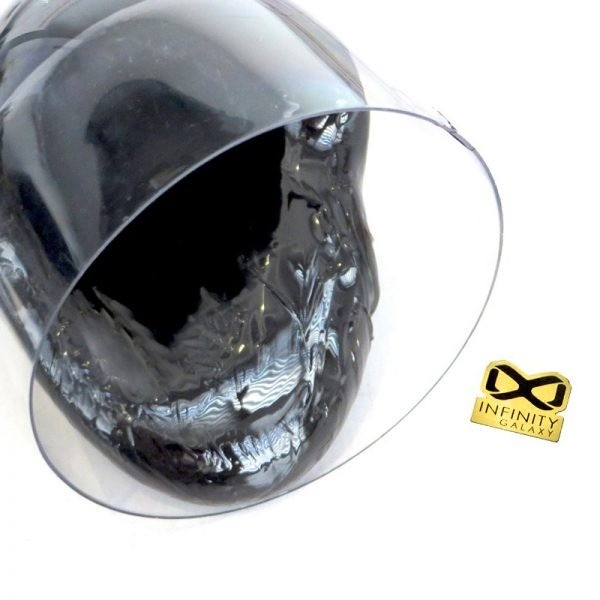
Electrical Conductivity of Bitumen
Bitumen is generally considered to be electrically non-conductive because it is an organic material composed of hydrocarbons, which typically do not conduct electricity well.
Chemical Properties of Bitumen
Flash and Fire Point of Bitumen
The flash point is the minimum temperature at which a bitumen creates flammable vapors. In flash point we have a temporary flame but in fire point there is a continuous burning flame at least for 5 seconds. Learn how to measure them by looking at the bitumen flash and fire point test.
The flash point of bitumen ranges from 220 °C to 350 °C, and the fire point is usually greater than the flash point. However, since cutback bitumen include volatile components, It has a significantly lower flash and fire point.
Purity of Bitumen
Bitumen quality is reduced when it has any inorganic or mineral content. The purity of bitumen is evaluated by a test of bitumen solubility in trichloroethylene (TCE). If bitumen has a solubility of more than 99% in TCE, it can make a uniform and stable asphalt.
If you have any questions or orders related to bitumen, leave a comment here or a message on WhatsApp. We will respond to you as soon as possible.



